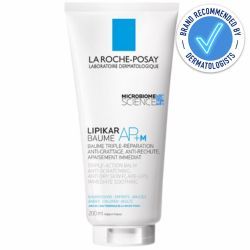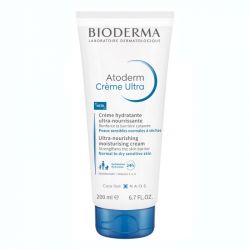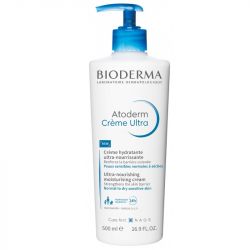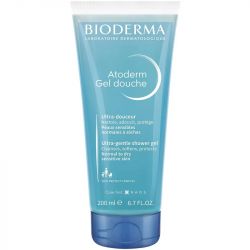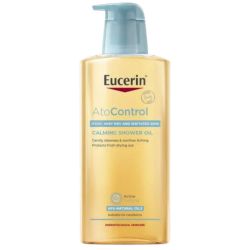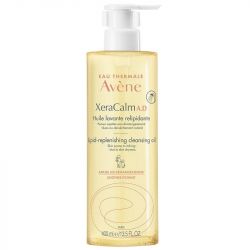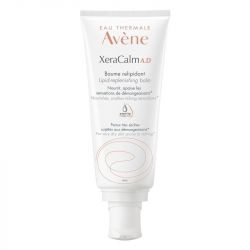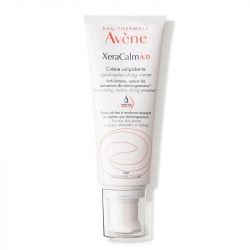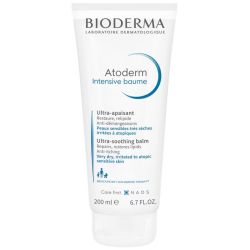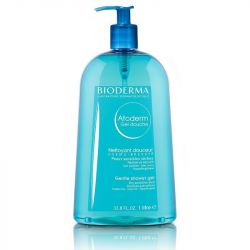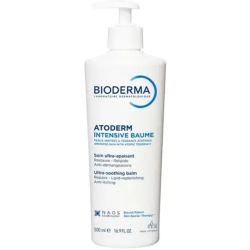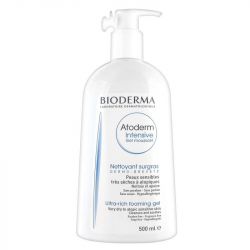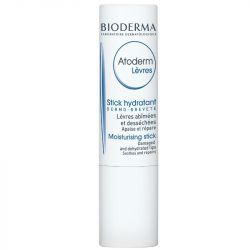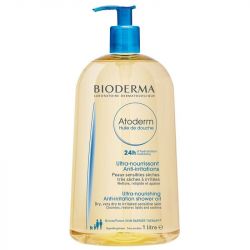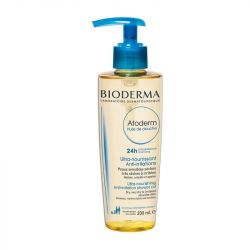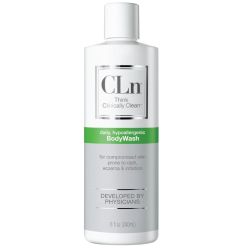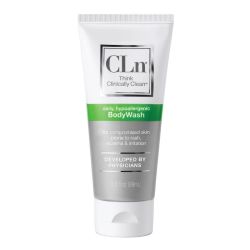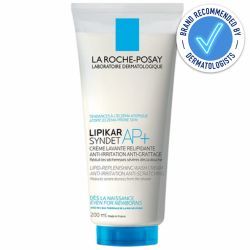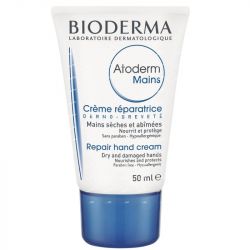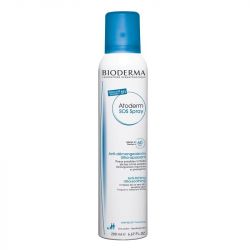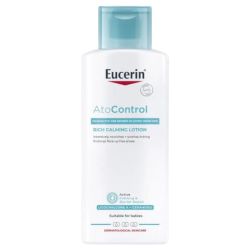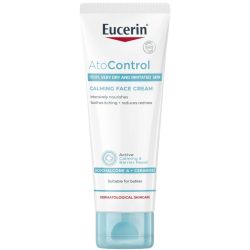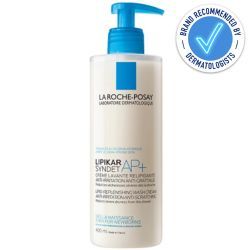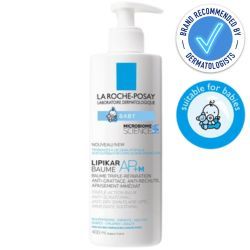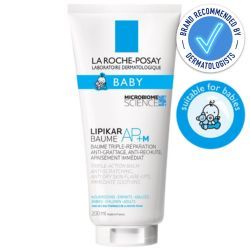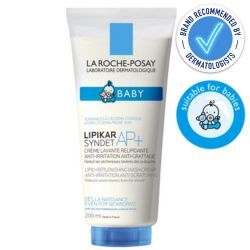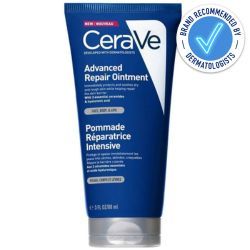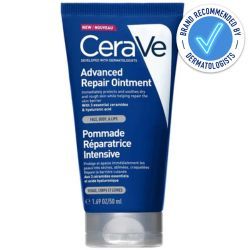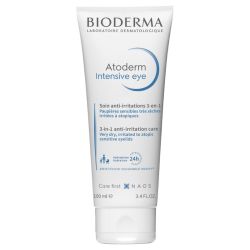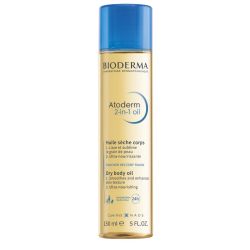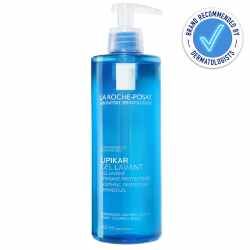Eczema Creams & Skincare Treatments
Eczema is a chronic skin condition that causes dryness, redness, itchiness, and inflammation due to a compromised skin barrier. It is a broad term encompassing several types of eczema, such as atopic dermatitis, contact dermatitis, seborrheic dermatitis, dyshidrotic eczema, and nummular eczema, each with unique triggers and symptoms. Eczema occurs when the skin’s natural barrier is weakened, allowing irritants, allergens, and microbes to penetrate, leading to inflammation, itching, and flare-ups.
Dermatological skincare can help manage eczema by restoring the skin’s natural barrier, reducing inflammation, and alleviating itchy skin. Products enriched with ceramides, omega fatty acids, glycerin, sodium hypochlorite and soothing agents like thermal spring water provide essential hydration and protection for eczema-prone skin, helping to prevent flare-ups and improve overall skin health.
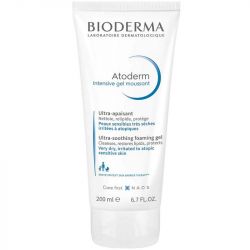 Bioderma Atoderm Intensive Ultra-Soothing Foaming Gel 200mlSpecial Price £9.60 Regular Price £12.00
Bioderma Atoderm Intensive Ultra-Soothing Foaming Gel 200mlSpecial Price £9.60 Regular Price £12.00- Bioderma Atoderm Intensive Ultra-Soothing Foaming Gel 500mlSpecial Price £12.80 Regular Price £16.00
Dermatological FAQ's: Eczema Creams & Skincare Treatments
What is eczema, and what causes it?
Eczema is a chronic skin condition characterised by dryness, redness, itching, and inflammation. It occurs when the skin barrier is weakened, allowing irritants, allergens, and microbes to penetrate, leading to flare-ups. Common causes include genetics, environmental triggers (like cold weather, dry air, or pollution), stress, and irritants such as harsh soaps or detergents. Eczema is also associated with other atopic conditions like asthma and hay fever.
What is the best body wash for eczema?
One of the best body washes for eczema is CLn BodyWash, a dermatologist-recommended solution containing sodium hypochlorite, helps reduce bacteria, soothe irritation, and protect the skin’s natural barrier. Clinically proven to ease symptoms such as dryness, redness, and itching, it is a safe and effective choice for daily use. To learn more, visit our blog: Best Body Wash for Eczema: Dermatologist-Recommended.
Key ingredients for managing eczema include:
- Ceramides: Restore the skin barrier and lock in moisture. CeraVe moisturisng cream contains 3 essential ceramides to reapir the skin barrier.
- Omega fatty acids: Nourish and soothe irritated skin.
- Sodium hypochlorite: Found in products like CLn BodyWash, it reduces bacteria and inflammation
- without irritation.
- Glycerin: Attracts moisture to keep skin hydrated.
- Thermal spring water: Present in La Roche-Posay Lipikar Baume AP+M, it soothes sensitive and irritated skin.
- Colloidal oatmeal: Calms itching and irritation.
How can sodium hypochlorite help with eczema?
Sodium hypochlorite is a gentle antimicrobial agent that helps reduce bacteria, which can trigger or worsen eczema flare-ups. It soothes inflammation, reduces redness, and prevents secondary infections. Products like CLn BodyWash provide a safer alternative to bleach baths by delivering the benefits of sodium hypochlorite in a dermatologically tested, non-drying formula suitable for eczema-prone skin.
Is La Roche-Posay good for eczema?
Yes, La Roche-Posay offers a range of dermatological skincare products specifically formulated for eczema. Their Lipikar Baume AP+M is enriched with shea butter, glycerin, and niacinamide to restore the skin barrier, hydrate deeply, and reduce itching. The Lipikar Syndet AP+ Cleansing Cream gently cleanses without stripping moisture, making it ideal for sensitive, eczema-prone skin.
How often should I moisturise eczema-prone skin?
Moisturise eczema-prone skin at least twice a day, ideally after bathing, when the skin is damp, to lock in moisture. Use rich, dermatological creams or balms like La Roche-Posay Lipikar Baume AP+M or Avène XeraCalm AD Balm to keep the skin hydrated and reduce flare-ups. Reapply throughout the day on particularly dry or irritated areas.
Avoid ingredients that can irritate or trigger flare-ups, such as:
- Fragrances and essential oils.
- Alcohol and astringents.
- Harsh detergents and sulfates in cleansers.
- Preservatives like methylisothiazolinone.
Opt for dermatologist-recommended products free from these irritants to minimise flare-ups and keep the skin calm.
Can eczema be cured with skincare alone?
Eczema cannot be cured, but skincare plays a vital role in managing symptoms and preventing flare-ups. Dermatological treatments, such as those from La Roche-Posay, CLn, Eucerin, and Bioderma, are designed to restore the skin barrier, reduce itching, and hydrate deeply. For severe eczema, additional treatments like topical corticosteroids, immunosuppressants, or biologic therapies may be prescribed by a dermatologist.

